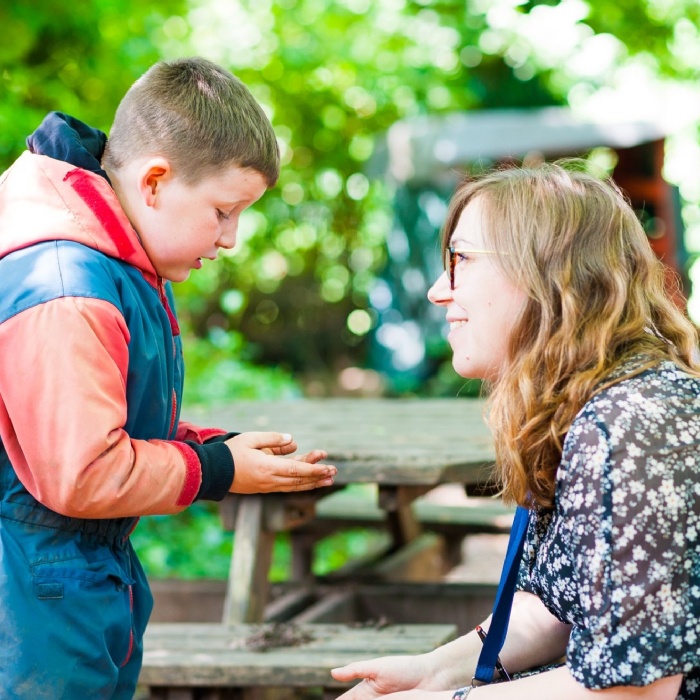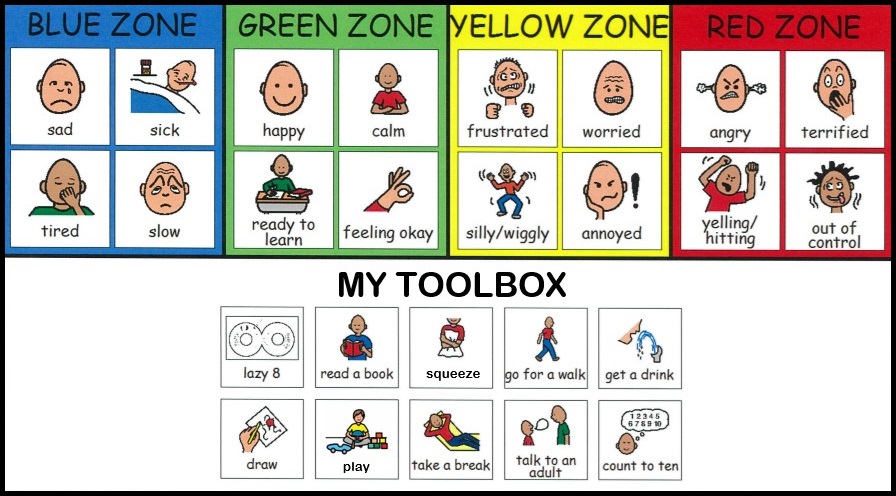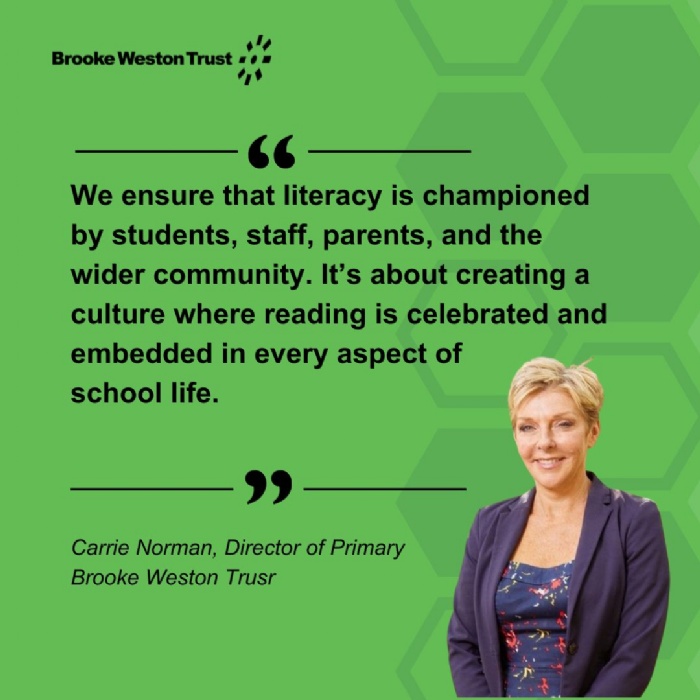A tailored approach to ‘Wellbeing’ in the curriculum at BWT

At BWT we believe in ‘Ambition for all’ and as part of this ethos, we focus on the mental and physical wellbeing of all students across our schools.
We’re proud to be ‘going the extra mile’ with embedding wellbeing into our curriculum, knowing how it supports the development of well-rounded, socially-responsible and ambitious young people.
In this article, we hear from some of our senior specialists, including our Director of Primary School Improvement, Carrie Norman, who explains how the BWT curriculum has been designed to support wellbeing and the impact this is having on children across the Trust.
The right tools for the job…
Carrie and her team have created a personal development curriculum that goes way beyond the DfE’s statutory framework. Modules covering topics such as ‘economic wellbeing’ and ‘healthy relationships’ are being covered across the Trust and delivered in a consistent, but tailored way.
Good emotional literacy is known to support mental wellbeing and Carrie is passionate about developing this skill in students. She explains: “We have developed our Emotional Literacy Curriculum this year, which will be embedded over the coming year. This curriculum supports mental health and covers topics like: Emotional intelligence, Emotional resilience, Self-regulation and Protective characteristics.”
Within this, Carrie has introduced a concept called the ‘Zones of Regulation’ which gives children a way to talk about their emotions using colours. She continues: “It’s a whole school approach, so teachers across the Trust are able to use it to ‘lead by example’ and show pupils that it’s OK to feel all kinds of emotions and that there are tools to help us self-regulate”.
Carrie’s ambition is that all Primary school pupils are equipped with tools like this to help them regulate their emotions by the time they reach secondary school.
Zones of Regulation:

Further to the emotional literacy programme, Carrie has developed a programme called “50BFY7” a bespoke menu of 50 experiences or activities that pupils should try to achieve before they start secondary school, such as den-building, charity work, seeing chicks hatch, star gazing. Many of the items on the list support mental wellbeing and confidence building. Items on the list encourage connection with nature and the community – e.g. building a den, gazing at the stars, participating in charity work and watching chicks hatch.
An important aspect of the Trust’s approach to wellbeing in the curriculum is the ability to adapt to the emerging needs of each individual school, to ensure impact and relevance. This is achieved with regular collaboration among the schools and the Trust’s central teams. Emerging trends are identified and discussed so that issues are dealt with sensitively and effectively.
Wellbeing is woven into all areas…
Extra strands have been added to the BWT curriculum that are linked to the wellbeing of students. For example, our Geography curriculum includes strands about ‘our connections with the world’ and ‘sustainability’. The RE curriculum incorporates ‘worldview’ and ‘empathy’. It’s very much about reflection and personal thought. Our History curriculum includes ‘migration’ across cultures and ‘political continuity’ and ‘change’. Our computing curriculum includes key elements of online safety to reflect the emerging trends in young people.
A long-term commitment to Wellbeing in both Primary and Secondary…
The plan is to thoroughly embed the PSHE curriculum and the Zones of Regulation this year. Carrie explains that every school has its own story and particular cultural nuances. Teachers are able to adapt the content to their individual school needs, in addition to what’s in the curriculum. Safeguarding leads meet regularly with PSHE leads, so if there’s an emerging issue, the curriculum can be adapted accordingly. Carrie has regular discussions with James Down and the Trust DSLs, where children’s mental health is a recurring theme (at both Primary and Secondary level).
Carrie explains that she and Adam Crawte (Trust Director of Curriculum – Secondary) are planning a project this year to bring curriculum leads together to develop wellbeing further. We have talked about our PSHE curriculums and most of the Secondary schools are now beginning to adopt the bespoke BWT one.
Adam Marriott, Secondary Director of Subjects at the Trust added: “We use a bespoke approach for our Secondary Schools Wellbeing Curriculum. It allows us to address the needs of individual students and whole communities and is a long-term commitment to ensure that every pupil has the skills and ability to support their wellbeing both now and in the future.”
He added: “At the heart of every decision we make about the curriculum we always ask ourselves: How do we ensure that this will benefit pupils?”
Safeguarding at the heart…
James Down, Head of Safeguarding at Brooke Weston Trust explains how his team developed a Safeguarding Curriculum last year that will keep the Trust fit for the future. Using their newly created Safeguarding data dashboard, leaders are able to identify strengths and areas of need across schools. This data is used to collaborate and plan accordingly. James talks about a ‘forensic understanding of need, enabling us to be responsive’. It’s a progressive approach and one that uses external expertise where needed. It’s clear that Wellbeing is intrinsically linked to effective Safeguarding and it’s something that James Down is constantly monitoring across the Trust. Always keen to challenge the status quo, James explains that the Personal Development Curriculum will face an external review later this summer.
“We’re arranging for children, parents and staff to engage with our mental health support teams so that we can review and enhance our current provision. We want to go above and beyond for our families, so we’ll use the information to inform how we support them. We know that there are socio-economic pressures facing many families and we’re also seeing a rise in anxiety among certain age groups in our schools, so we’re looking at a range of appropriate interventions to help with this.”
James echoes Carrie’s emphasis on the importance of departments working together. He explains that Safeguarding runs through the core of the Personal Development curriculum. Every school has regular discussions with PD Leads and Safeguarding Leads to ensure that the right content is delivered at the right time. This practice of working together is successfully being embedded into the culture.
After leading a successful (County-wide) Safeguarding conference, James is keen to look at more ways to drive the agenda. He plans to bring a working group together to start drafting the mental health wellbeing strategy for the Trust. “We have secured funding from the DfE for ‘mental health lead training’. Currently, 2 of our schools are going through this process, but soon, ALL of our schools will have a strategic mental health lead.”
“We recognise that education goes way beyond the core subjects and we want to give all of our students the tickets for life, so that they can navigate and thrive in this complex world. The work we’re doing here is essential and I’m extremely proud to be part of it” he concludes.
Of course, the wellbeing of every member of our Trust community is important, not least our wonderful staff, who have such an impact on our students every day. We will be focussing on staff wellbeing in a future article, so keep an eye on our news pages throughout the term to find out more…







